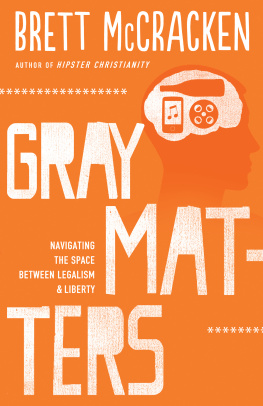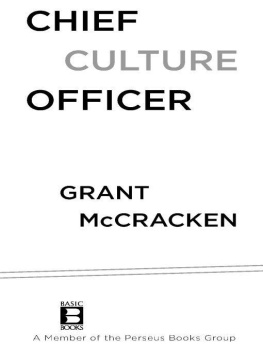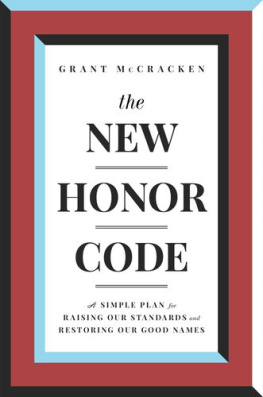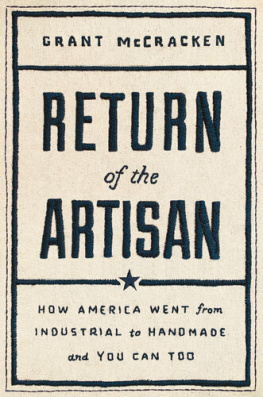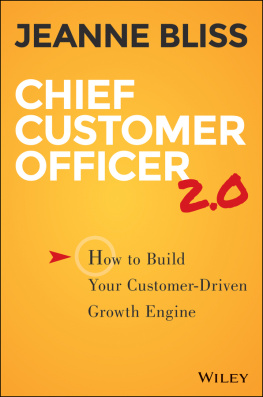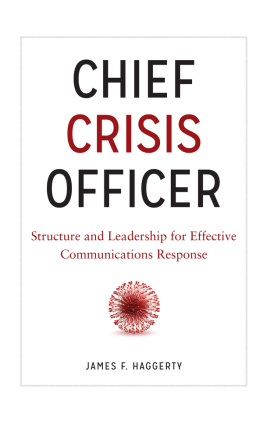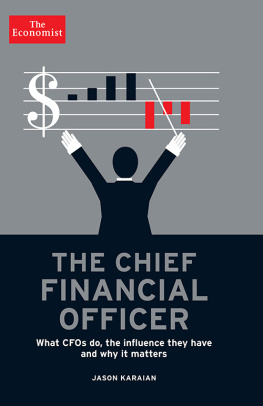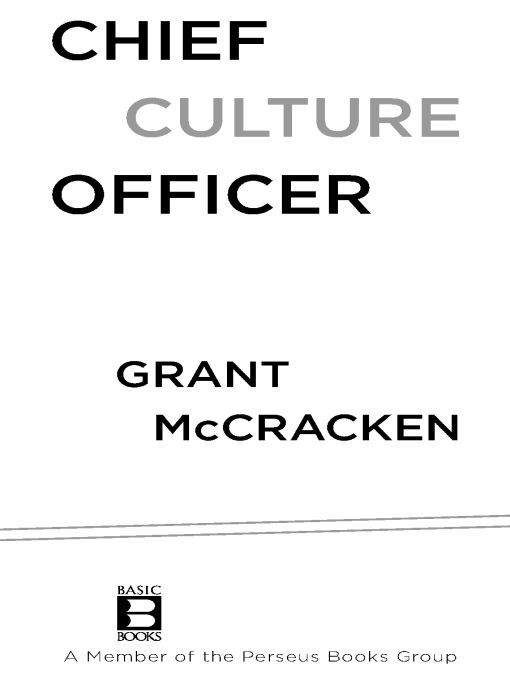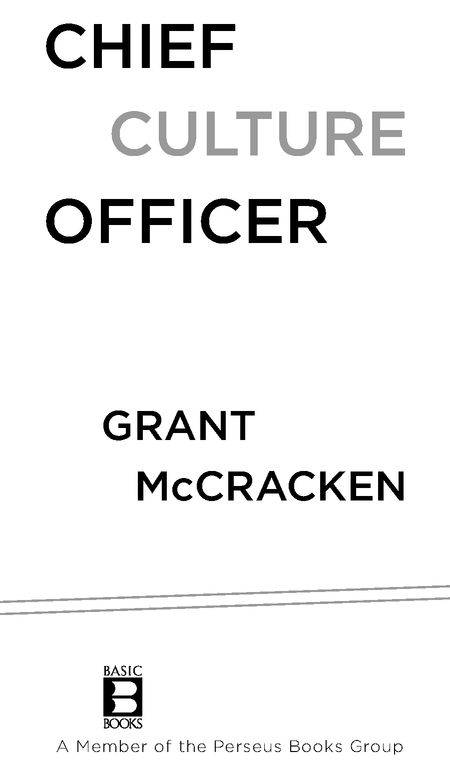Table of Contents
MORE PRAISE FOR GRANT McCRACKEN AND CHIEF CULTURE OFFICER
This is a marvel of a business book: highly entertaining, original, and provocative. Entrepreneurs who want to understand their customers, target market, and the cultural dynamics that shape the business worldwhich is to say all entrepreneursneed to read it.
BEN CASNOCHA, author of My Start-Up Life: What a (Very) Young CEO Learned on His Journey through Silicon Valley
In Chief Culture Officer, Grant McCracken highlights the increasing importance of cultural understanding for brands that wish to remain relevantand profitablein the protean flux of the modern marketplace, as he carves out a new role for the 21st-century corporation. The best marketers can hope for is to create something that resonates so strongly it becomes part of our cultural fabric. This book is an indispensable tool for achieving that goal.
FARIS YAKOB, Executive Vice President and Chief Technology Strategist, McCann Erickson New York
Marketing gets failing grades when it comes to understanding and using culture. In Chief Culture Officera delectable cultural soup that is sure to stir your taste budsGrant McCracken makes a compelling case that culture will be marketings next silver bullet. I whole-heartedly endorse his call for bringing culture-thinking into the company.
PHILIP KOTLER, author of Chaotics: The Business of Managing and Marketing in the Age of Turbulence
Grant McCracken, once again, sees clearly the patterns in which innovation, enterprise, and smart people can influence change, create value, and respond to popular culture, where real people experience choice. The book is terrific and spot on.
RICHARD GREF, CEO, AIGA | the professional association for design
Grant McCracken has cracked the holy grail of whats next to blend talent management, corporate strategy, and trendspotting, and his storytelling style captivates and educates. I am blown away.
MARIAN SALZMAN, partner and chief marketing officer, Porter Novelli
HOW TO CREATEA LIVING, BREATHINGCORPORATION
For Pamela
INTRODUCTION
LEVI STRAUSS, THE JEANS AND APPAREL MAKER, MISSES hip-hop. The penalty: $1 billion.
Quaker pays too much for Snapple. The penalty: $1.4 billion.
Facebook claims 7 billion photos as its own. Embarrassment and recantation follow.
These corporations, like most, were bad at reading culture, bad at staying in touch with culture, bad at working with culture. And it cost them dearly.
By culture, I dont mean corporate culture. And I dont mean high culture, the world of refined taste. By culture, I mean the world outside the corporation, the body of ideas, emotions, and activities that make up the life of the consumer.
Its not that the corporation hasnt tried to take account of culture. Its resorted to the advertising agency, designer, consultant, cool-hunter, and guru. Worst case, someone says, Lets see what the intern thinks. (Now a million-dollar decision rests on a twenty-year-old.) But culture is too important to be left to an outsider (or a twenty-year-old). When theres $1.4 billion at stake, it needs a Chief Culture Officer.
The corporation has learned many things in the past one hundred years. It has mastered most of the mysteries of organizational behavior, operations management, human resources, communication, marketing, and finance. Until it masters culture, it makes the world needlessly mysterious. It multiplies risk.
Culture matters for reasons good and bad. First, it is the place to discover advantage, opportunity, and innovation. The Four Seasons, Patagonia, Starbucks, Nike, Red Bull, Target, Method Soapeach is a culture play. Each found value in culture. Each extracted value from culture.
Second, culture is the breeding ground of cataclysmic change, a North Sea out of which commotion constantly storms. Without a working knowledge of culture, the corporation lives in a perpetual state of surprise, waiting for the next big storm to hit. Without a CCO, the corporation has no way to perform this crucial piece of threat assessment.
Its a great puzzle that the corporation should still be trying to solve this problem. We have had 230 years since Adam Smith to find a way to work with culture. Certainly, gifted entrepreneurs and managers rose to address the problem. What was missing was a clear idea, a working knowledge, of culture.
In management literature, there was always a newcomer to elbow culture out of the way. Objectives! said Drucker. Quality! said Deming. Reengineering! said Hammer and Champy. Excellence! said Peters. Strategy! said Porter. Theres always a new guru, bearing a shiny new toy for the C-suite. Poor culture, always the bridesmaid, never the bride.
Thats what I want to do with this book: invent an office and an officerthe Chief Culture Officer, the person who knows culture, both its fads and fashions, and its deep, enduring structures. I hope this book will be read by two groups: people inside the corporation who want to make the corporation more intelligent, strategic, and responsive, and people outside the corporation who want to turn their knowledge of culture into a profession and a career.
To the CEO, I say, appoint a Chief Culture Officer. To those poised to become a CCO, I say, You can do it. I can help.
CHAPTER 1
GETTING PAST GURU
Being Steve Jobs
HES A GENIUS.
Jobs is indispensible.
Steve Jobs is the key to Apple success... [W]ithout him [Apples] future is very much in doubt.
People talk about Steve Jobs as if he were one of a kind. Clearly, he is a remarkable man. When we look at what hes done for Apple, cell phones, digital content, the art of design... well, he has earned our admiration.
But when it comes to helping Apple navigate culture, Steve Jobs may be less indispensible than we think. With a more systematic approach to culture, many could do what Jobs has done. Lets not be blinded by the cult of personality. Its good for Jobs. Its good for Apple. Its not so good for the rest of us. We have made ourselves guru-dependent.
Jobs owes some of his celebrity to how bad the corporation is at culture. As long as the competition is someone like Sonys Sir Howard Stringerthe CEO who couldnt bring himself to apologize for Rootgate and struggles to grasp new media and youth culturewell, Jobs is bound to look like a genius. As long as culture is ignored by business schools, C-suites, big brands, and consulting houses, Jobs looks great. In the land of the blind, the one-eyed man is king (even in sneakers, jeans, and black turtlenecks).
Many companies depend on a guru: Apple on Jobs, Virgin on Richard Branson, CBS on Les Moonves, Omnimedia on Martha Stewart, Bad Boy Entertainment on Sean Combs. The Securities and Exchange Commission worries about this sort of thing. It says that these companies must warn the investor. Heres what Omnimedia is obliged to say about Stewart in its annual report.
Ms. Stewarts efforts, personality and leadership have been and continue to be critical to our success... [T]he repeated diminution, or loss of her services, due to disability, death or some other cause... could have a material adverse effect on our business.



